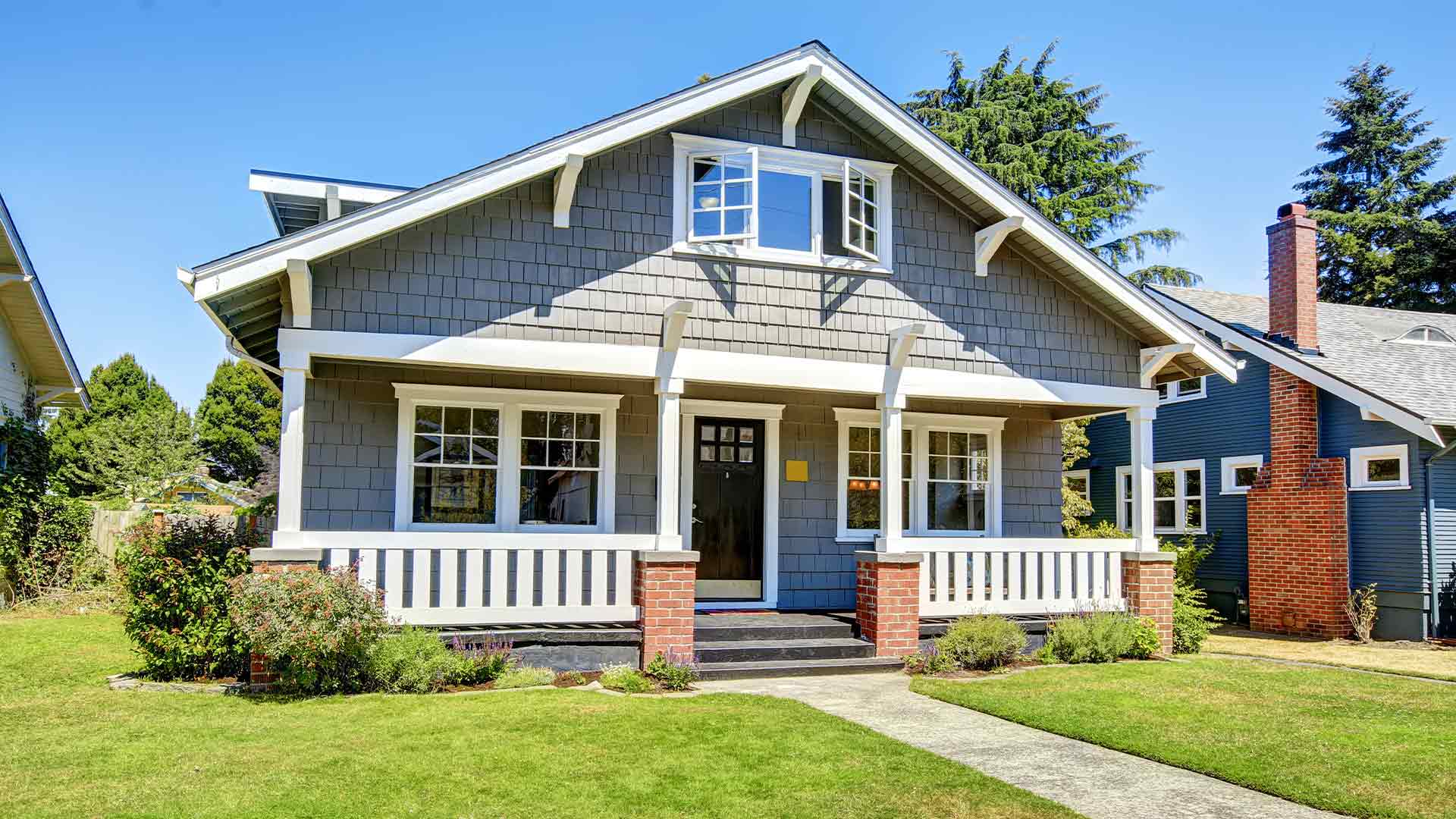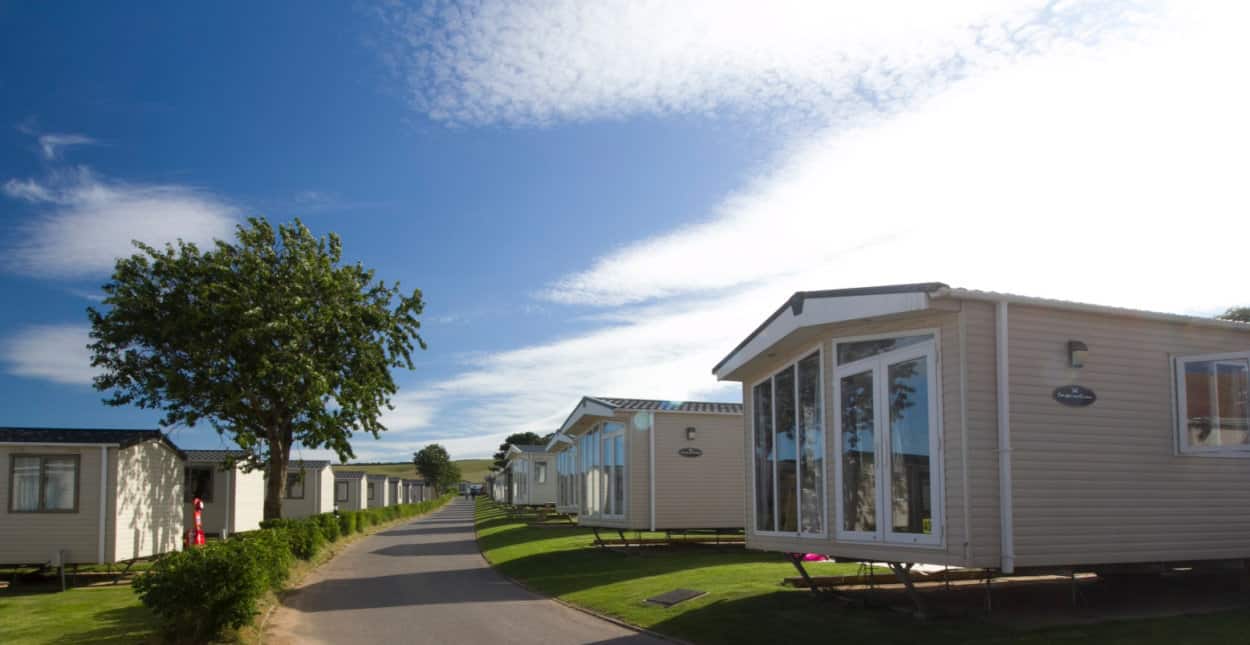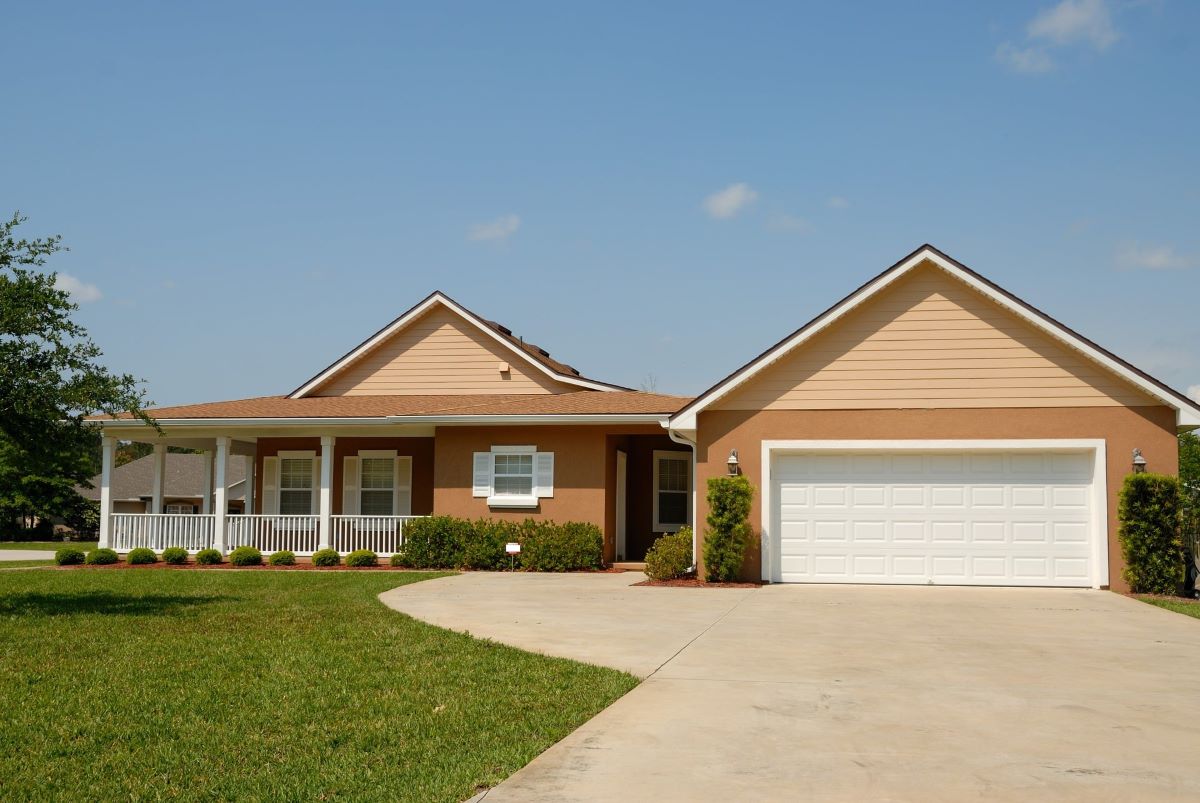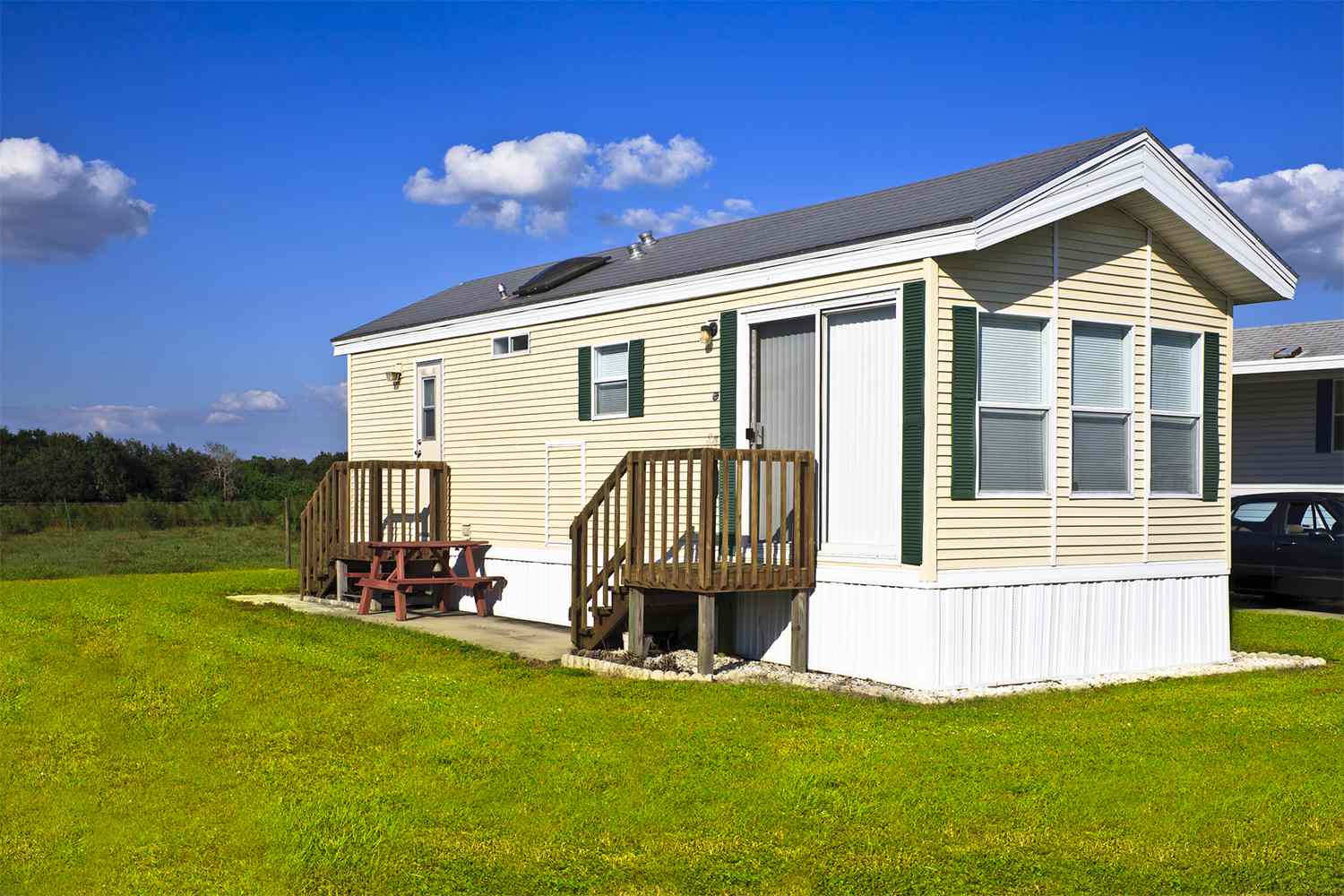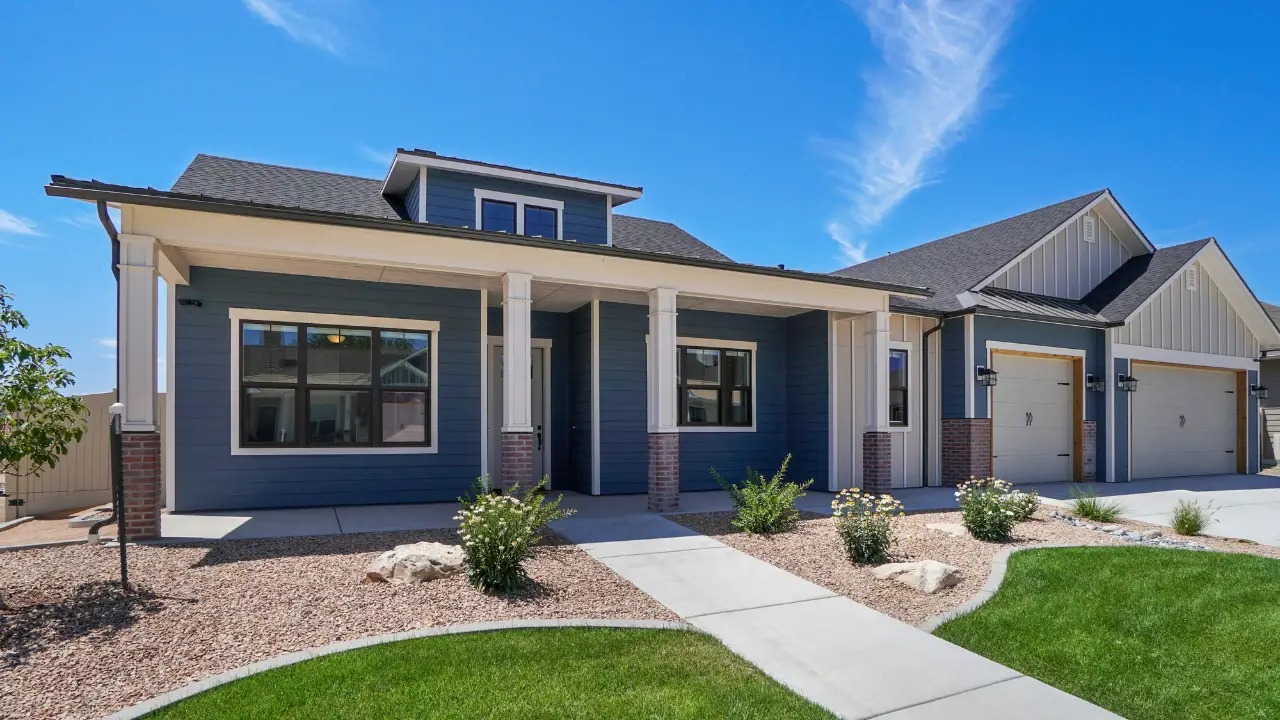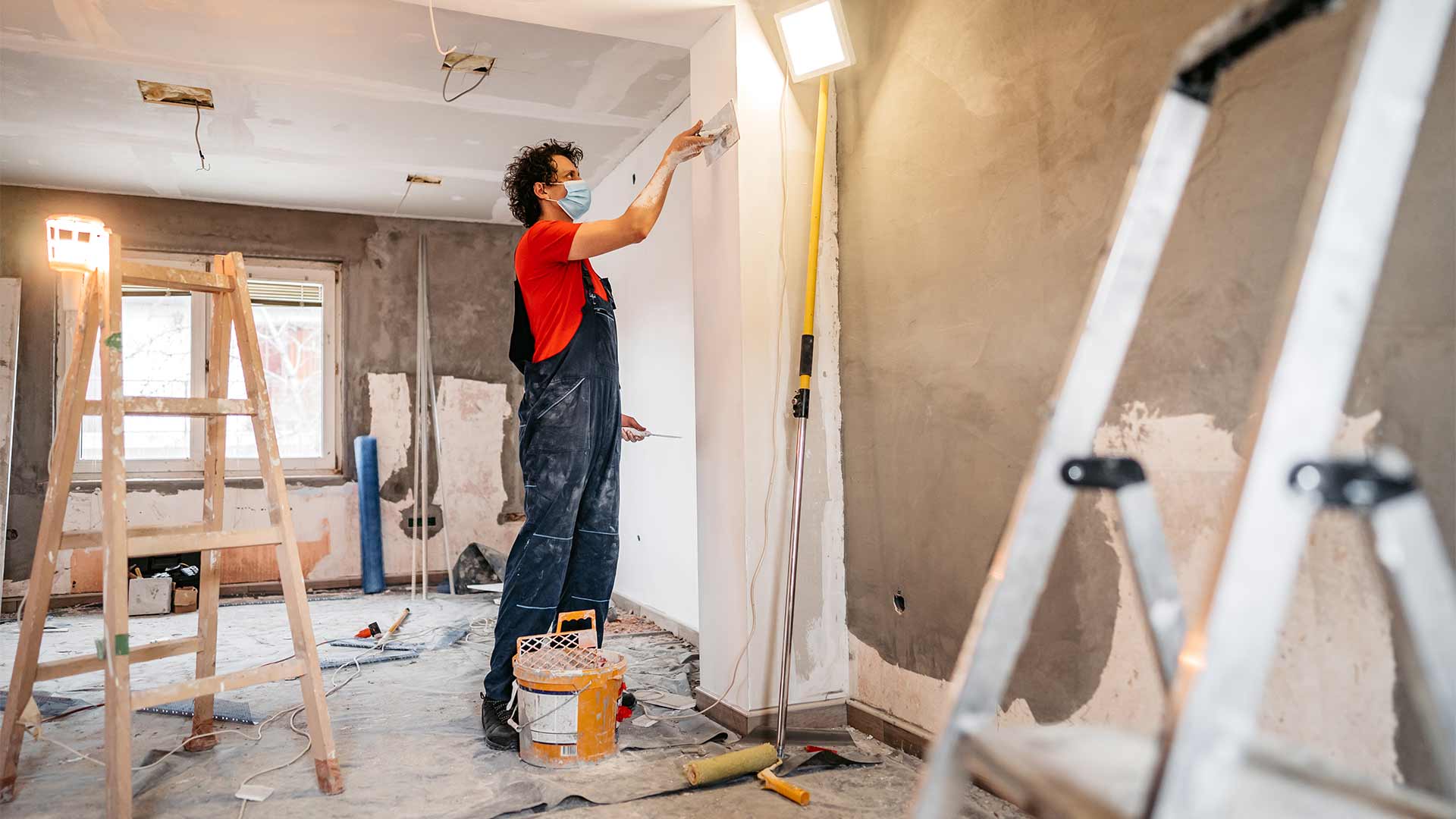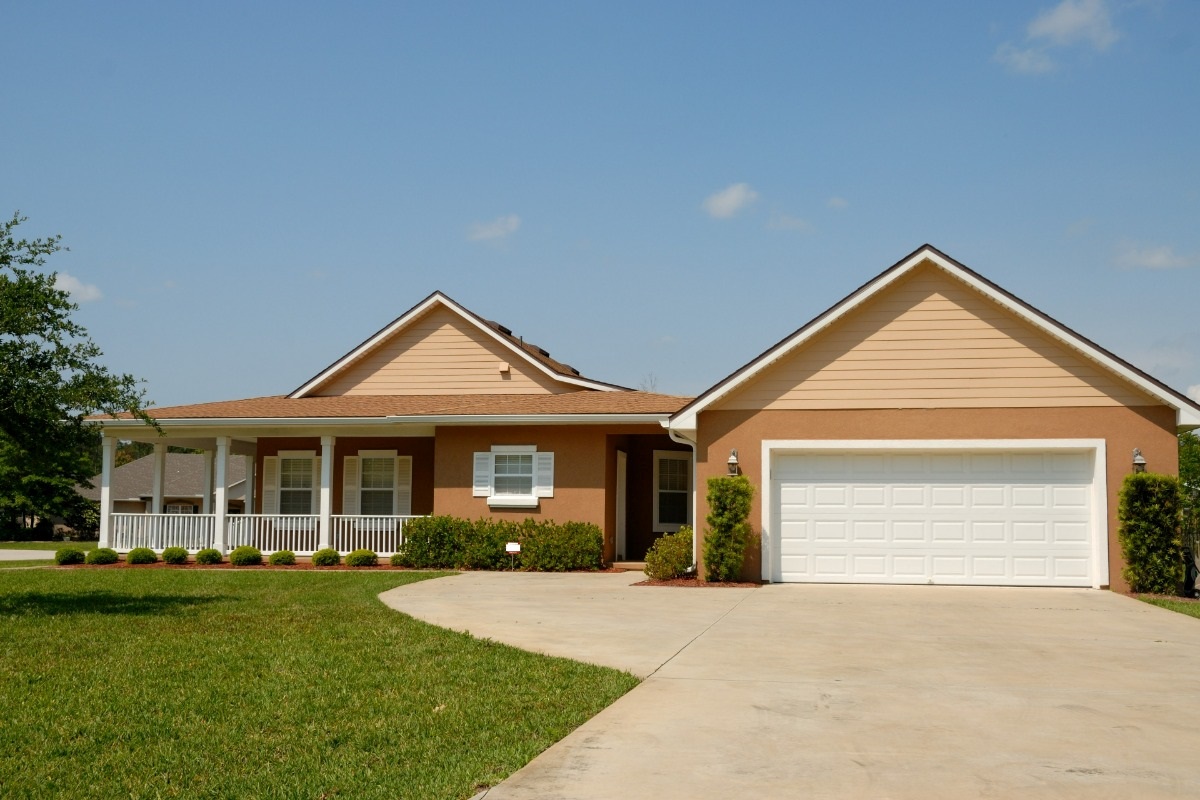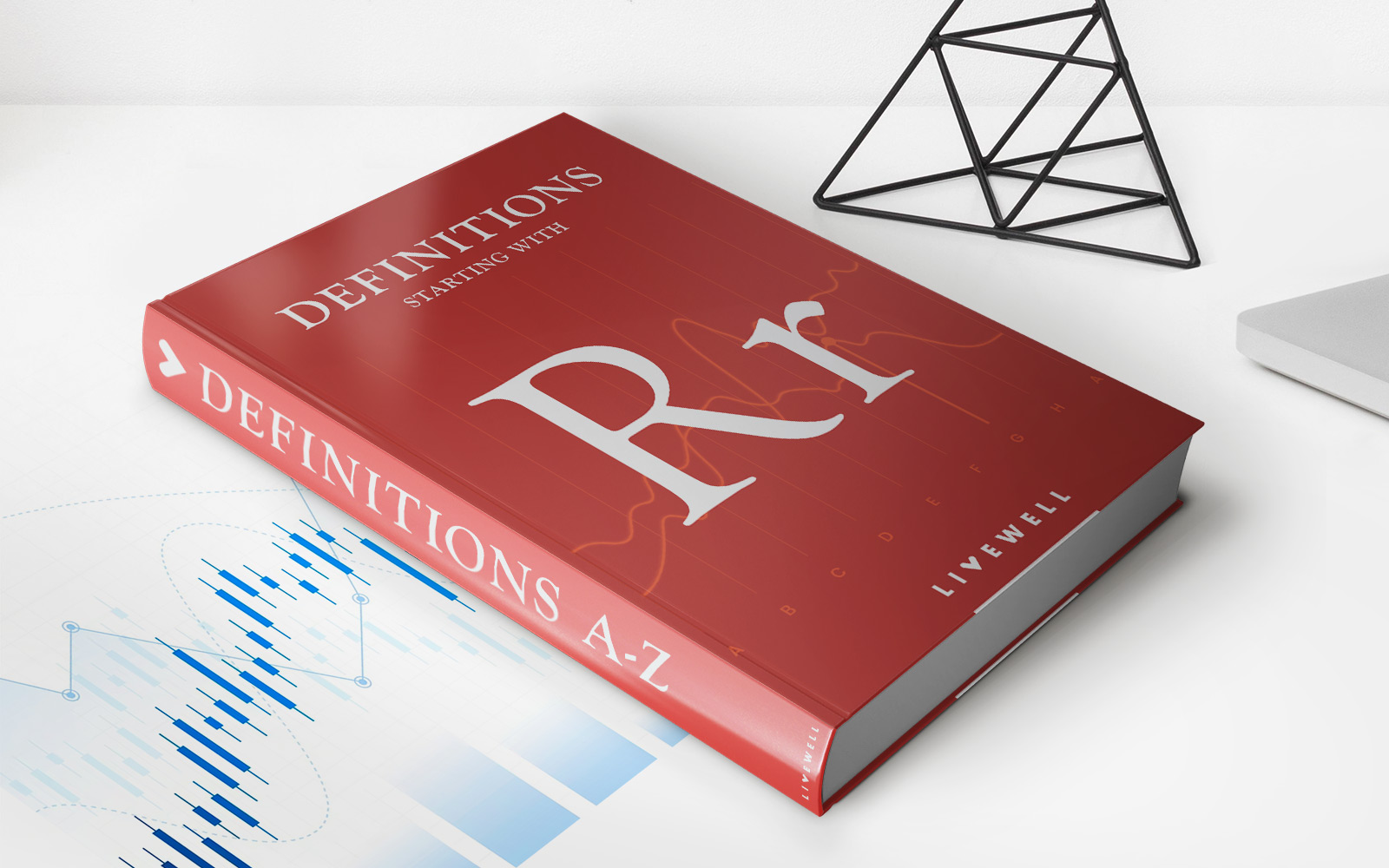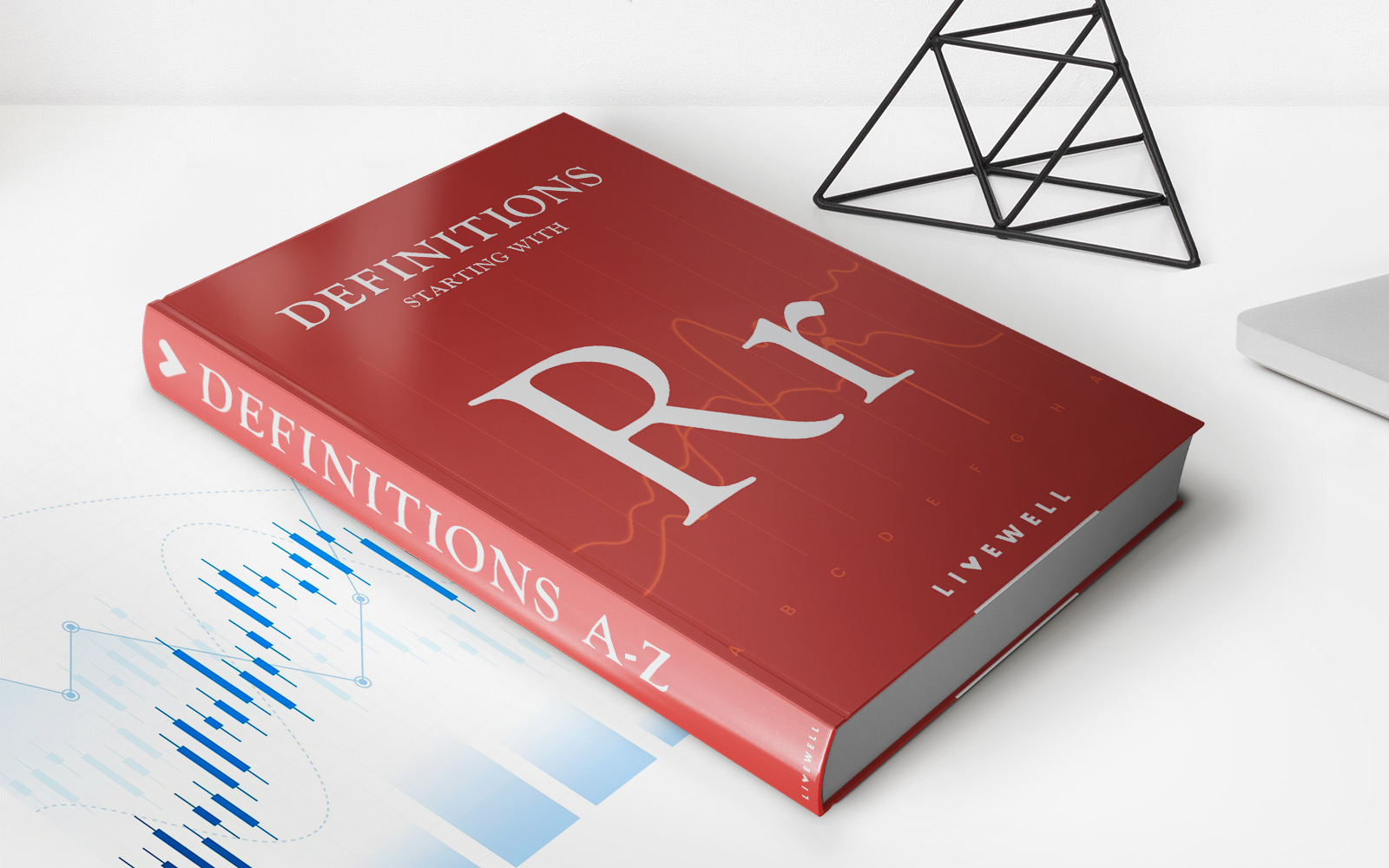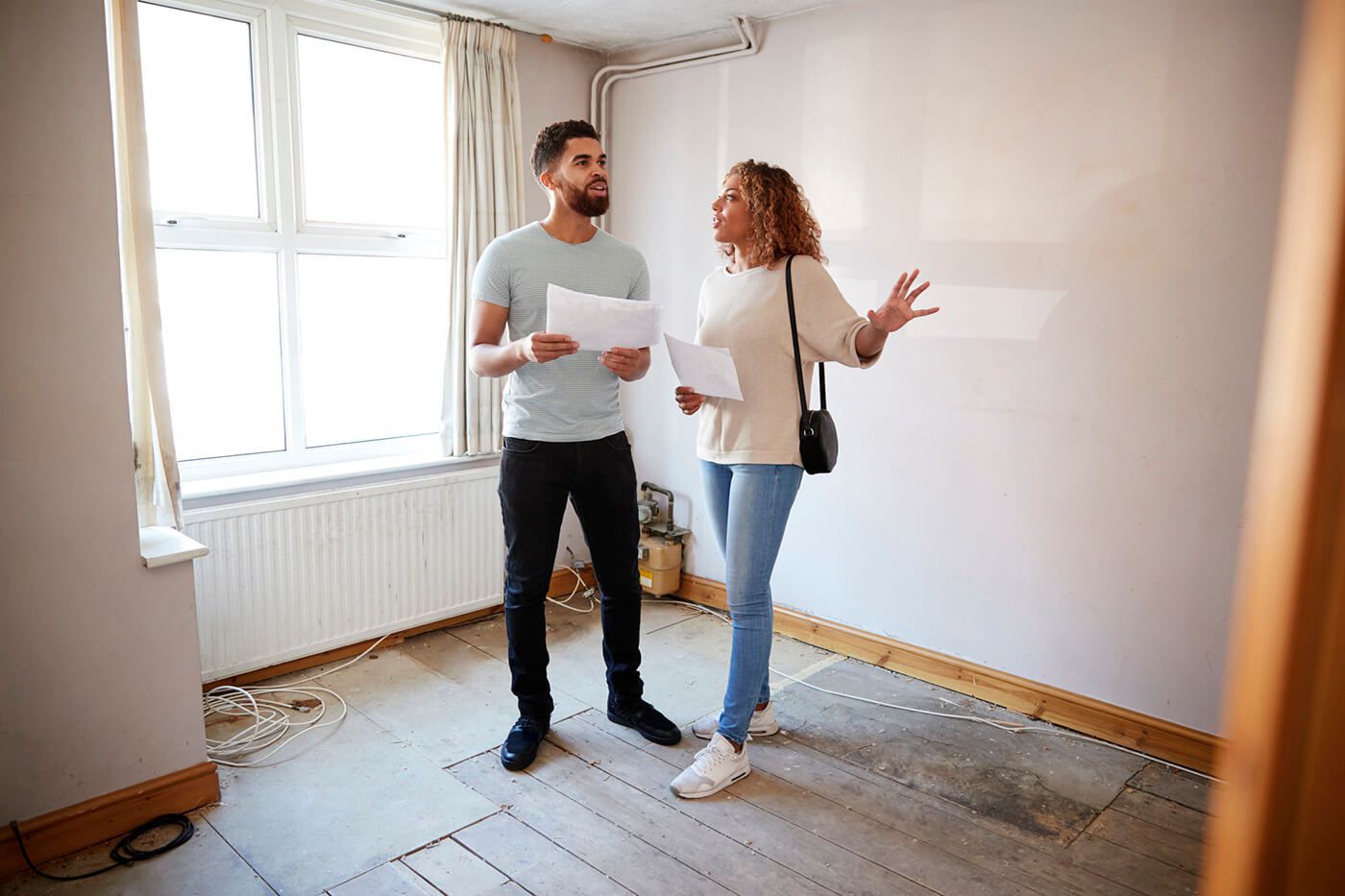

Finance
How To Buy A Foreclosed Home With Bad Credit
Published: January 4, 2024
Learn how to finance a foreclosed home purchase even with bad credit. Explore strategies and options to turn your dream of homeownership into a reality.
(Many of the links in this article redirect to a specific reviewed product. Your purchase of these products through affiliate links helps to generate commission for LiveWell, at no extra cost. Learn more)
Table of Contents
Introduction
Buying a foreclosed home can be an excellent opportunity to purchase a property at a discounted price. However, if you have bad credit, you may be concerned about your ability to secure financing for a foreclosed property. While it is true that having a low credit score can present challenges, it doesn’t necessarily mean that you won’t be able to buy a foreclosed home. With proper planning, research, and effort, you can still achieve your dream of homeownership.
Before diving into the process of buying a foreclosed home with bad credit, it’s important to understand what exactly a foreclosed home is. A foreclosed home is a property that has been repossessed by a lender after the previous owner failed to make their mortgage payments. These homes are typically sold through auctions or by the lender itself to recoup their investment.
One of the first steps when considering a foreclosed home purchase is to determine your budget. Assess your financial situation, including your monthly income, expenses, and existing debts. This will help you understand how much you can afford to spend on a property. Additionally, consider the additional costs associated with purchasing a foreclosed home, such as repairs, renovations, and any outstanding liens or taxes.
Once you have a budget in mind, the next step is to research foreclosed properties. There are various online platforms, real estate websites, and foreclosure listings that provide information about available properties. Take the time to browse through these listings, noting the location, condition, and asking prices of the properties that catch your interest.
Simultaneously, explore financing options to determine which ones are suitable for your situation. Traditional lenders may be hesitant to lend to individuals with bad credit, so it’s essential to explore alternative financing options such as government-backed loans or working with specialized lenders who offer loans specifically for foreclosed homes or individuals with poor credit.
Improving your credit score should also be a priority before embarking on the journey to purchase a foreclosed home. Although it may take time, there are several steps you can take to boost your credit rating. This includes paying off outstanding debts, ensuring all bills are paid on time, and disputing any inaccuracies on your credit report.
Enlisting the help of a real estate agent who specializes in foreclosures can be immensely beneficial. They have the knowledge and experience to guide you through the process, negotiate on your behalf, and potentially uncover hidden gems in the foreclosure market.
Once you’ve found the perfect foreclosed property, it’s time to make an offer. Depending on the circumstances, the offer may need to be competitive, so be prepared to negotiate with the seller or the bank. It’s important to have a thorough understanding of the market value of similar properties in the area to make a reasonable offer.
Once your offer is accepted, the process of purchasing a foreclosed home can be quite different from a traditional home purchase. You’ll need to conduct inspections, obtain appraisals, and navigate any legal complexities associated with the foreclosure. It’s crucial to have professionals such as home inspectors and real estate attorneys assist you throughout this process.
After successfully completing all necessary inspections and paperwork, you’ll finally reach the closing stage. This is when you’ll officially take ownership of the foreclosed property. Ensure you review all the documents carefully and understand your rights and obligations as a homeowner.
Buying a foreclosed home with bad credit may present unique challenges, but it is certainly not impossible. With proper planning, research, and perseverance, you can find a foreclosed property that fits your budget and fulfill your dream of homeownership. It may require more effort and patience, but the potential rewards can be significant. Remember, always seek guidance from professionals and don’t hesitate to ask questions along the way.
In the next section, we will delve deeper into understanding foreclosed homes and how to determine your budget.
Understanding Foreclosed Homes
Before diving headfirst into the process of buying a foreclosed home with bad credit, it’s crucial to have a solid understanding of what a foreclosed home is and how it differs from a traditional home purchase.
A foreclosed home, also known as a foreclosure property, is a property that has been repossessed by a lender or financial institution after the previous owner failed to make their mortgage payments. When a homeowner falls behind on their mortgage payments, the lender initiates a legal process known as foreclosure to reclaim the property.
Once the foreclosure process is complete, the property becomes the ownership of the lender or bank, and they are eager to recoup their investment. In most cases, these foreclosed homes are sold through auctions or listing platforms specifically designed for selling distressed properties.
Buying a foreclosed home comes with its advantages and challenges. One of the most significant advantages is the potential for purchasing the property at a significantly lower price compared to its market value. Lenders are usually motivated to sell foreclosed properties quickly, often leading to discounted prices to attract potential buyers.
However, it’s important to note that foreclosed homes are typically sold “as-is,” meaning the buyer is responsible for any repairs or renovations needed. The previous owners may have neglected maintenance or faced financial difficulties, resulting in potential damages to the property. It’s crucial to conduct thorough inspections and assessments before making a purchase.
When considering a foreclosed property, it’s essential to understand the different types of foreclosures. The two primary types are pre-foreclosure and bank-owned foreclosures (REOs).
Pre-foreclosure properties are homes where the owners have fallen behind on their mortgage payments but are still in possession of the property. During this stage, the property owner may be motivated to sell to avoid foreclosure. Buyers can negotiate directly with the homeowner or work with real estate agents who specialize in pre-foreclosure properties.
Bank-owned foreclosures, or real estate-owned (REOs) properties, are homes that have already completed the foreclosure process and are owned by the lending institution. These properties are typically sold through auctions or real estate listings and may require more paperwork and negotiation with the bank.
Understanding the foreclosure process and the different types of foreclosed properties is crucial to navigate the complexities of the market. It’s essential to do thorough research, including property title searches, understanding any liens or legal disputes, and assessing the condition of the property.
One of the advantages of working with a real estate agent experienced in foreclosures is that they can guide you through the process and help you navigate the potential pitfalls. They can provide valuable insights and knowledge about the local foreclosure market and help you find properties that align with your budget and requirements.
In the next section, we will explore the importance of determining your budget when buying a foreclosed home with bad credit.
Determining Your Budget
When it comes to buying a foreclosed home with bad credit, determining your budget is a crucial step in the process. Knowing how much you can afford to spend on a property will help guide your search and ensure that you don’t overextend yourself financially.
Begin by evaluating your overall financial situation. Take a close look at your monthly income and expenses. Consider any existing debts, such as credit card payments, car loans, student loans, or outstanding medical bills. Be realistic about your ability to take on additional financial obligations.
Next, calculate your housing expenses. This includes not only the monthly mortgage payments but also property taxes, homeowner’s insurance, and any homeowner association (HOA) fees. Keep in mind that foreclosed homes may require repairs or renovations, so it’s important to factor in these potential costs as well.
Aim for a monthly housing expense that is no more than 30% of your pre-tax income. This is a general rule of thumb to ensure that you can comfortably afford your mortgage payments without sacrificing other essential expenses.
If you have bad credit, traditional lenders may be hesitant to offer you a loan. However, there are alternative financing options to explore. Government-backed loans, such as Federal Housing Administration (FHA) loans or Veterans Affairs (VA) loans, may be available to individuals with lower credit scores. These programs often have more lenient credit requirements and lower down payment options.
It’s also worth considering working with specialized lenders who offer loans specifically designed for purchasing foreclosed properties or for individuals with bad credit. These lenders may have different criteria and loan terms than traditional lenders, making it easier for you to secure financing.
Remember to consider the additional costs associated with purchasing a foreclosed home. In addition to potential repairs and renovations, there may be outstanding liens or taxes on the property that you will be responsible for. Perform a thorough title search to uncover any potential issues before finalizing the purchase.
It’s important to be realistic and disciplined when determining your budget. Avoid stretching yourself too thin financially, as this can lead to financial stress and potential difficulties down the line. Stick to your budget and ensure that you have a financial cushion for unexpected expenses or emergencies.
Keep in mind that buying a foreclosed home with bad credit may require some compromises. You may need to be open to properties in different locations or those that require more extensive repairs. Finding a balance between your budget and your needs is essential to make a smart investment and avoid any financial strain.
In the next section, we will discuss the importance of researching foreclosed properties and how to find the right one for you.
Researching Foreclosed Properties
When it comes to buying a foreclosed home with bad credit, thorough research is essential to ensure that you find the right property that meets your needs and fits within your budget. Researching foreclosed properties involves exploring available listings, assessing property conditions, and understanding the local market dynamics.
Start by utilizing online platforms and real estate websites that specialize in listing foreclosed properties. These platforms provide a wealth of information, including property details, photographs or virtual tours, and asking prices. Pay attention to the location, size, and condition of the properties that catch your interest.
Take advantage of the search filters available on these platforms to narrow down your options based on criteria such as price range, property type, number of bedrooms, and location. This will help you streamline your search and focus on properties that align with your preferences.
As you browse through the listings, make note of any additional information provided, such as the property’s foreclosure status, any outstanding liens or taxes, and whether there are any known issues or required repairs. This information will give you a better understanding of what to expect and help you evaluate the potential costs involved.
In addition to online listings, consider reaching out to local real estate agents who specialize in foreclosures. They often have access to foreclosure properties that may not be publicly listed and can provide valuable insights into the local market conditions. Real estate agents can also help you navigate the complexities of the foreclosure buying process, negotiate on your behalf, and provide guidance throughout the transaction.
When researching foreclosed properties, it’s important to conduct due diligence. This includes performing a thorough inspection of the property to assess its condition and potential repair costs. While it may be tempting to solely rely on the information provided in the listing, physically inspecting the property allows you to uncover any hidden issues that may impact your decision.
Consider hiring a professional home inspector who specializes in foreclosed properties. They can identify any structural concerns, plumbing or electrical problems, or other issues that may not be immediately apparent. This information will help you determine if the property is worth pursuing and if any repairs or renovations are within your budget.
Researching the local market dynamics is equally important. Look into recent comparable sales in the area to get an idea of the property’s value and ensure that the asking price is reasonable. This will also help you gauge the competitiveness of the market and make informed decisions when it comes to making an offer on a foreclosed property.
Remember to exercise patience and persistence during your research process. It may take time to find the right foreclosed property that meets your requirements and budget. Be diligent in your search, attend auctions if applicable, and stay proactive in reaching out to real estate professionals who can assist you in your quest to find the perfect foreclosed home.
In the next section, we will explore different financing options for buying a foreclosed home with bad credit.
Obtaining Financing Options
When buying a foreclosed home with bad credit, obtaining financing options can be a critical piece of the puzzle. While traditional lenders may be reluctant to offer loans to individuals with low credit scores, there are alternative financing options available to help make your dream of homeownership a reality.
Start by exploring government-backed loan programs, such as the Federal Housing Administration (FHA) loans or Veterans Affairs (VA) loans. These programs are designed to assist individuals with lower credit scores or who may have difficulty qualifying for conventional loans. FHA loans, for example, are insured by the Federal Housing Administration, which allows lenders to offer more favorable terms and lower down payment requirements. VA loans, on the other hand, are available to eligible veterans, active-duty service members, and surviving spouses.
These government-backed loan programs often have more lenient credit score requirements and lower down payment options. However, it’s important to familiarize yourself with the specific guidelines and requirements of each program to determine if you qualify and to understand any potential limitations.
In addition to government-backed loans, consider working with specialized lenders who focus on financing for foreclosed properties or individuals with bad credit. These lenders specialize in understanding the unique challenges and circumstances associated with buying foreclosed homes and may be more willing to offer loans based on other factors, such as income and the potential value of the property.
It’s essential to do thorough research and compare different lenders to find the best financing options for your situation. Look for lenders who have experience working with borrowers with bad credit and who have a track record of successfully closing loans for foreclosed properties.
When applying for financing, it’s important to be prepared. Gather all the necessary documents, such as proof of income, bank statements, tax returns, and any documentation related to your employment history. It may also be beneficial to provide a letter of explanation detailing any past credit issues and steps you have taken to improve your financial situation.
Keep in mind that when obtaining financing for a foreclosed property, you may need to be prepared for a higher interest rate or additional fees compared to traditional home loans. This is because lenders often consider foreclosed properties to carry higher risk. However, with time and effort, as you demonstrate responsible financial behavior, you may have the opportunity to refinance your mortgage in the future to obtain lower interest rates.
Working with a knowledgeable mortgage broker or a loan officer who specializes in foreclosures and bad credit financing can be highly beneficial. They can assist you in exploring different financing options, guide you through the application process, and help you understand the terms and conditions of the loan.
By exploring government-backed loan programs, specialized lenders, and working with professionals who understand the unique challenges you may face, you can increase your chances of obtaining financing for a foreclosed home, even with bad credit.
In the next section, we will discuss the importance of improving your credit score when buying a foreclosed home.
Improving Your Credit Score
When it comes to buying a foreclosed home with bad credit, improving your credit score is an essential step in the process. While having a low credit score may present challenges, there are steps you can take to boost your creditworthiness and increase your chances of securing financing.
Start by obtaining a copy of your credit report from the major credit bureaus – Equifax, Experian, and TransUnion. Review the report carefully and look for any errors or inaccuracies that may be negatively impacting your credit score. Dispute any incorrect information and work with the credit bureaus to have it corrected or removed.
Next, focus on paying off outstanding debts. Prioritize making payments on time and in full to show creditors that you are responsible with your financial obligations. If you have any past due accounts, work on bringing them current as quickly as possible. Reducing your debt-to-income ratio by paying off existing debts can positively impact your credit score.
Consider developing a budget and sticking to it. By effectively managing your finances, you can ensure that you have enough money to cover your expenses and make timely payments. Avoid taking on unnecessary debt and limit your credit card usage to demonstrate responsible financial behavior.
Keep your credit card balances low. Aim to utilize no more than 30% of your available credit limit. High credit utilization can signal potential financial instability to potential lenders and negatively impact your credit score. Consider paying off small balances or making extra payments to reduce your credit utilization ratio.
If you have limited credit history or no credit at all, consider building your credit by obtaining a secured credit card or becoming an authorized user on someone else’s credit card. Use these accounts responsibly by making small charges and paying them off in full each month to establish a positive credit history.
Be patient and consistent in your efforts to improve your credit score. It may take time for your positive financial habits to be reflected in your credit report, but every small step toward better credit management can make a difference.
If you find it challenging to improve your credit score on your own, consider seeking guidance from credit counseling agencies. These organizations can offer advice, create a personalized plan to improve your credit, and help negotiate with creditors on your behalf.
Remember, improving your credit score is not only crucial for obtaining financing when buying a foreclosed home but also has long-term benefits for your overall financial well-being. By taking proactive steps to improve your creditworthiness, you can put yourself in a better position to achieve your homeownership goals.
In the next section, we will discuss the importance of working with a real estate agent when buying a foreclosed home with bad credit.
Working with a Real Estate Agent
When buying a foreclosed home with bad credit, working with a real estate agent who specializes in foreclosures can be highly beneficial. These professionals have the knowledge, experience, and connections to guide you through the process and increase your chances of finding the right property within your budget.
One of the key benefits of working with a real estate agent is their expertise in the foreclosure market. They have a deep understanding of the intricacies and nuances of buying foreclosed homes. They can provide valuable insights about local market conditions, trends, and potential risks associated with specific properties.
A real estate agent experienced in foreclosures can help you navigate the complexities of the foreclosure buying process. They can assist you in understanding the legalities involved, such as the different stages of foreclosure and the relevant timelines. They can also guide you through the paperwork, purchase contracts, and any required disclosures specific to foreclosures.
Real estate agents have access to comprehensive listing databases and resources. They can help you identify suitable foreclosed properties that match your criteria, such as location, price range, size, and condition. They can also help you uncover hidden gems in the market and alert you to new listings as they become available.
When it comes to negotiating the purchase of a foreclosed property, having a skilled real estate agent by your side can be invaluable. They can help you determine a competitive offer price based on market trends and comparable sales in the area. They can also negotiate on your behalf with the seller or the bank to secure the most favorable terms and conditions.
Real estate agents can assist you in understanding any potential risks or issues associated with a foreclosed property. They can recommend professional home inspectors or contractors who will thoroughly assess the property’s condition, uncover any hidden problems, and provide estimates for repairs or renovations.
Throughout the entire buying process, a real estate agent can act as your advocate and guide. They can help you navigate any obstacles or challenges that may arise, ensure you meet critical deadlines, and coordinate with other professionals involved, such as lenders, attorneys, and inspectors.
It’s important to choose a real estate agent who specializes in foreclosures and has a track record of successfully closing transactions. Take the time to interview potential agents, ask about their experience with foreclosed properties, and request client testimonials or references.
Remember, working with a real estate agent is typically free for buyers, as they are compensated by the seller or the bank. Take advantage of their expertise and resources to make the process of buying a foreclosed home with bad credit smoother and more efficient.
In the next section, we will discuss the process of making an offer on a foreclosed property.
Making an Offer
After extensive research and working with a real estate agent, you have found the perfect foreclosed property that suits your needs and budget. The next step in buying a foreclosed home with bad credit is making an offer. This stage requires careful consideration and negotiation skills to ensure you present a competitive offer that stands out among other potential buyers.
Before making an offer, it’s important to have a thorough understanding of the market value of similar properties in the area. Your real estate agent can provide you with this information, including recent sales data and comparable properties. This will help you gauge a fair offer price and avoid overpaying for the property.
Keep in mind that foreclosed properties are often priced below market value, which can attract multiple offers. Therefore, it’s crucial to be prepared to compete with other potential buyers. Depending on the situation, the listing may be a traditional sale or an auction. Your real estate agent will guide you through the appropriate procedure for making an offer.
Consider working with your real estate agent to draft a well-written, compelling offer letter. This letter should include essential details such as your offer price, any contingencies (such as financing or inspection), and a brief explanation of your interest in the property. Adding a personal touch to the letter can help you stand out from other potential buyers.
Due to the potential complexities of foreclosure sales, it’s crucial to work closely with your real estate agent to ensure that your offer aligns with the specific requirements outlined by the seller or the bank. There may be additional paperwork or documentation necessary, such as proof of funds or pre-approval letters, so ensure you provide all requested information in a timely manner.
Be prepared for potential negotiations with the seller or the bank. Foreclosed properties are often sold as-is, meaning the seller or bank is typically not willing to make any repairs or provide concessions. However, depending on the property’s condition and your offer, there may be room for negotiation on the purchase price or terms.
Having a real estate agent by your side during negotiations can be invaluable. They can provide expert advice, explain any counteroffers or changes to the terms, and help you navigate the negotiation process. Their experience and knowledge of the foreclosure market can significantly enhance your chances of reaching a successful agreement.
Remember to set a maximum budget for yourself and stick to it during the negotiation process. It can be tempting to get caught up in a bidding war or exceed your financial limits. Stay focused on the true value of the property and your ability to comfortably afford the purchase.
Once the seller or bank accepts your offer, it’s important to act quickly to move forward with the purchase. There may be specific timelines or conditions outlined in the acceptance, such as providing earnest money or scheduling inspections. Your real estate agent will guide you through the next steps, ensuring that all necessary tasks are completed within the designated timeframe.
In the next section, we will explore the foreclosure buying process and the steps involved after your offer has been accepted.
The Foreclosure Buying Process
Once your offer on a foreclosed property has been accepted, the foreclosure buying process begins. It’s important to be aware of the specific steps involved to ensure a smooth and successful transaction. Understanding the process will help you navigate any potential challenges and make informed decisions throughout the buying journey.
One of the first steps after your offer is accepted is to finalize the financing for your purchase. If you have been pre-approved for a loan, work closely with your chosen lender to complete the necessary paperwork and provide any additional documentation they may require. Ensure you meet all the deadlines to avoid delays in the closing process.
During this period, it’s also crucial to conduct inspections and appraisals on the property. Hire a licensed home inspector to thoroughly evaluate the condition of the property and identify any potential issues or necessary repairs. The inspection report will provide valuable information to make informed decisions regarding the purchase and negotiate additional repairs or concessions, if needed.
An appraisal is typically required by the lender to assess the market value of the property. The appraiser will compare the property to similar homes in the area to determine its worth. This step ensures that the property’s value aligns with the offered price and protects both you and the lender from overpaying for the property.
While conducting inspections and appraisals, it’s critical to review the title report and address any outstanding liens or legal issues that may affect the property’s ownership. Your real estate agent or attorney can assist you in ensuring a clean title and resolving any potential complications.
After completing inspections, appraisals, and resolving any title issues, you will move towards the closing process. Closing is the final step where ownership of the foreclosed property officially transfers to you. It involves signing all the necessary legal documents, including loan agreements, title transfers, and any additional paperwork required in your jurisdiction.
It’s crucial to carefully review all the documents before signing to make sure you fully understand your rights and obligations as a homeowner. If you have any questions or concerns, consult with your real estate attorney or agent who can provide clarification and guidance.
Before the closing, it’s recommended to conduct a final walkthrough of the property. This allows you to ensure that any repairs or negotiated terms have been addressed and that the property is in the agreed-upon condition. If any issues arise during the walkthrough, you can discuss them with the seller or bank to find a resolution before the closing.
During the closing, you will be required to pay closing costs, which typically include fees for title search, attorney services, loan origination, and prepaid expenses such as homeowner’s insurance and property taxes. Be prepared to bring the necessary funds in the form of a cashier’s check or wire transfer.
Once all the documents are signed and funds are exchanged, you will officially become the owner of the foreclosed property. Your real estate agent or attorney will ensure all the necessary paperwork is filed and recorded with the appropriate authorities to protect your ownership rights.
After the closing, it’s time to celebrate your successful purchase of a foreclosed home. Begin planning any necessary renovations or repairs, and start making the property your own.
It’s important to note that the foreclosure buying process can vary depending on local regulations and specific circumstances. Working with a knowledgeable real estate agent and attorney who specialize in foreclosures will ensure that you navigate the process smoothly and minimize any potential risks or complications.
In the final section, we will conclude our discussion and summarize the key points to remember in buying a foreclosed home with bad credit.
Inspections and Appraisals
When purchasing a foreclosed home, conducting inspections and obtaining appraisals are crucial steps in the buying process. These assessments provide essential information about the property’s condition and value, helping you make informed decisions and ensuring you’re making a sound investment.
Inspections are conducted by licensed home inspectors who evaluate the overall condition of the property. They will carefully assess the structural integrity, electrical systems, plumbing, HVAC systems, and other components of the house. The inspection report will highlight any defects, safety issues, or necessary repairs that need attention.
It’s recommended to be present during the inspection to ask questions and gain a deeper understanding of the property. If any major issues are identified, you may have the opportunity to negotiate with the seller or bank for repairs or a reduction in the purchase price.
In addition to general inspections, it may be wise to consider specialized inspections for specific concerns. These can include pest inspections, roof inspections, or environmental assessments, depending on the property’s location and potential risks.
Appraisals, on the other hand, are conducted by licensed appraisers who determine the market value of the property. Appraisers assess factors such as the property’s size, condition, location, and recent comparable sales in the area. The appraisal report provides an unbiased estimate of the property’s value.
The appraisal is typically required by the lender to ensure that the property’s value aligns with the loan amount. This step protects both you and the lender from overpaying for the property and serves as a crucial factor in the mortgage approval process.
If the appraisal comes in lower than the purchase price, it can present challenges. Depending on the contract terms and negotiations, you may need to renegotiate the purchase price with the seller or make up the difference with additional funds.
It’s important to note that both inspections and appraisals are usually the responsibility of the buyer. It’s your opportunity to assess the property’s condition and value, highlighting any concerns before finalizing the purchase.
Working closely with your real estate agent, you can identify reputable inspectors and appraisers who specialize in foreclosed properties. They will ensure that the assessments meet industry standards and provide comprehensive reports.
Remember, inspections and appraisals are critical to uncover any hidden issues and protect your investment. They provide you with the necessary information to make informed decisions, negotiate repairs or adjustments, and ensure that you’re comfortable with the property’s condition and value.
In the final section, we will conclude our discussion and summarize the key points to remember when buying a foreclosed home with bad credit.
Closing the Deal
After navigating through the various stages of buying a foreclosed home with bad credit, the final step is closing the deal. Closing is the culmination of the purchasing process, where ownership of the property is officially transferred to you. This stage involves several important tasks and documents that must be completed to ensure a successful and legally binding transaction.
Prior to the closing, you will receive a closing disclosure document, which provides a detailed breakdown of the costs associated with the purchase. This includes the purchase price, lender fees, title fees, prepaid expenses, and any closing costs stipulated in the contract. Review this document carefully and compare it with the Loan Estimate you received earlier to ensure accuracy and consistency.
At the closing, you will be required to sign numerous legal documents, including the mortgage agreement, promissory note, deed of trust, and any additional paperwork pertaining to the mortgage loan. It is essential to read through each document thoroughly, seeking clarification from your real estate attorney or closing agent if needed, to understand the terms and commitments you are agreeing to.
During the closing process, you will need to provide funds for any down payment, closing costs, and other expenses as required. These funds are typically provided in the form of a cashier’s check or a wire transfer. Ensure that you have made the necessary arrangements with your bank or financial institution ahead of time to have the funds available when needed.
Additionally, the title search and title insurance are essential components of the closing process. The title search ensures that there are no outstanding liens, encumbrances, or claims on the property that could affect your ownership rights. Title insurance protects you and the lender against any unforeseen issues or claims that may arise in the future.
It’s crucial to conduct a final walkthrough of the property before the closing. This allows you to verify that any repairs or agreed-upon conditions have been met and that the property is in the expected condition. If any issues arise during the walkthrough, address them with the seller or bank to find a solution before proceeding with the closing.
Throughout the closing process, your real estate agent and attorney will guide you, explain all the steps, and answer any questions you may have. Their experience and expertise in handling real estate transactions, particularly foreclosures, will help ensure a smooth and successful closing.
After all the documents are signed, funds are exchanged, and the closing process is completed, you become the official owner of the foreclosed home. Be sure to keep copies of all the documents related to the purchase for your records.
Closing the deal on a foreclosed home is an exciting milestone, but it’s important to remember that the financial responsibilities do not end there. Regular mortgage payments, homeowner’s insurance, property taxes, and maintenance will continue to be part of your ongoing obligations as a homeowner.
Congratulations on successfully closing the deal and becoming a homeowner! Take the time to celebrate this achievement and start building the future you envision in your newly acquired foreclosed home.
In the final section, we will conclude our discussion and summarize the key points to remember when buying a foreclosed home with bad credit.
Conclusion
Buying a foreclosed home with bad credit may present challenges, but with careful planning, research, and the assistance of professionals, it is possible to achieve your dream of homeownership. Throughout this article, we have explored the various steps involved in the process, from understanding foreclosed homes to closing the deal.
Understanding what a foreclosed home is and conducting thorough research on available properties are critical first steps. Determining your budget and exploring different financing options, such as government-backed loans or specialized lenders, can help you overcome the hurdle of bad credit.
Improving your credit score by paying off outstanding debts, managing your finances responsibly, and seeking credit counseling if needed, can significantly enhance your ability to secure financing and favorable terms.
Working with a real estate agent who specializes in foreclosures can be invaluable throughout the buying process. They can guide you, provide insider knowledge, assist with negotiations, and ensure that you find the right foreclosed property that meets your needs and budget.
Inspections and appraisals are crucial steps to assess the condition and value of the foreclosed property. They provide essential information, allowing you to make informed decisions and potentially negotiate repairs or adjustments.
Closing the deal involves carefully reviewing and signing the necessary documents, providing the required funds, and completing the title search and insurance processes. This finalizes the purchase and officially transfers ownership to you.
Buying a foreclosed home with bad credit requires patience, diligence, and perseverance. It may involve compromises, such as considering properties in different locations or those in need of repairs. However, with the right knowledge, resources, and professionals on your side, you can successfully navigate the foreclosure market and achieve your goal of homeownership.
Remember to stay informed, stay organized, and seek guidance when needed. Take advantage of the expertise of real estate agents, lenders, inspectors, and attorneys who specialize in foreclosures. Their knowledge and experience can be instrumental in helping you navigate the complexities of the process.
By following these steps, improving your credit score, and working with the right professionals, you can turn the challenges of bad credit into opportunities and secure a foreclosed home that fits your budget and lifestyle.
Now, armed with this knowledge, go forth and embark on your journey to find the perfect foreclosed home. With determination and the right approach, you will be one step closer to turning your homeownership dreams into a reality.
